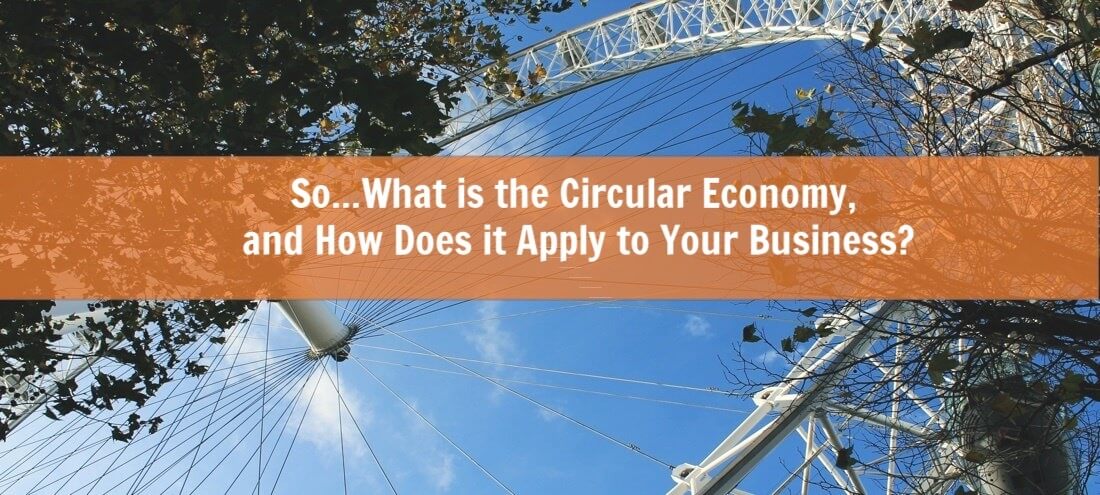
You may have already heard about the circular economy, perhaps as a part of your company’s sustainability strategy or just in passing. Chances are you’re still wondering what it actually is and what it has to do with you and your business.
Globally, our economy is based on a linear ‘take, make and dispose’ model of production and consumption. Decades of following this model has resulted in the depletion of our natural resources and huge amounts of waste and pollution choking our land, seas and air. A circular economy rethinks and reforms this status quo into a regenerative model in which raw material inputs and outputs, such as waste and emissions, are minimized or eliminated. For example, a circular economy for plastics would see the use of recycled plastic resin as feedstock for the manufacturing of new plastic products instead of using traditional virgin polymer resin derived from fossil fuels. This is the most used example of a circular economy, but the model can be applied across sectors, including the clothing and automotive industries. Circularity doesn’t just apply to material feedstock; it is applicable to auxiliary manufacturing inputs such as energy and water as well.
The circular economy is growing in global importance after being introduced in the late 1980’s, with companies and governments alike integrating circular strategies into their processes and policies. At the beginning of this year the European Union passed its Circular Economy Package outlining a circular strategy for plastics and 27 critical raw materials, such as rubber and cobalt. Coca-Cola also released its own circular economy strategy this year, setting the ambitious goal of a 100 percent recycling rate for all the company’s packaging across all product lines.
But again, how does this relate to your industry and your business? The circular economy is slowly but surely becoming a reality, driven by increasing constraints on our natural resources and reflected in changing regulation as well as customer demands. Companies from the environmental services giant Veolia to the aerospace manufacturer Lockheed Martin have incorporated circularity and resource efficiency into their business model. Companies are also forming partnerships to promote the circular economy; in 2010 UPS partnered with the innovative recycling company TerraCycle to help them with the logistics and shipping of the hard-to-recycle waste that TerraCycle is known for recycling.
Cleantech companies are inherently innovative, and as circular economy strategies become increasingly common across all sectors it is even more important to consider how you can participate and contribute in order to remain at the forefront of your industry. Your business’ future growth needs to be circular and sustainable to reflect these changing attitudes and the realities of limited resources.
Antenna Group is proud to be the marketing partner for the US Chamber of Commerce Foundation’s Fourth Annual Sustainability and Circular Economy Summit, with the theme Translating Value to Ignite Action. The summit aims to provide participants with a comprehensive understanding of sustainable and circular strategies as well as how to communicate the value of circularity as a business strategy. These are key tools to get your business going circular, and we’re offering a 20% discount code at registration to help you get there. Register today with the code SUSTY20 and learn how the future is circular.